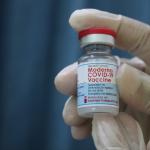California children 12 years and older may soon be allowed to get COVID-19 vaccines without their parents' consent if Senate Bill 866 (SB866
COVID
Public health officials have tried desperately to answer this question for the better part of two years: how do you convince the intransigent minority of vaccine-hesitant Americans to roll up their sleeves and get a COVID shot?
We've all heard the argument, and it goes like this: misinformation drives millions of people into COVID denialism.
People will do a lot of things for money, but getting a COVID vaccine seems to be one of the rare exceptions.
Here is the data on those patients hospitalized with laboratory-confirmed influenza for the State of New York. As of this moment, we have 1,224 hospitalizations.
It's not totally absurd to compare our war against COVID with a boxing match. The virus clearly won Round 1; aside from masks and isolation, we were pretty much defenseless.
Any time I see the phrase "according to fact-checkers" in a headline, I can't help but roll my eyes.
If you've been closely following the pandemic from the beginning (I hope you're enjoying the Prozac), it should be obvious how little we really knew about COVID a year ago. Social distancing? Did it really work? Maybe.












